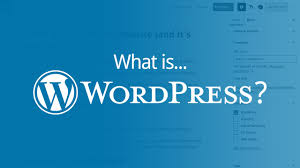1. Choose the Right Hosting Provider 🌐
The foundation of a fast website starts with reliable hosting. If you’re using shared hosting, consider upgrading to a managed WordPress hosting provider or a VPS (Virtual Private Server) for better performance. Providers like Alfaey Hosting offer optimized solutions for WordPress.
2. Use a Lightweight WordPress Theme 🎨
Select a fast, well-coded theme that’s optimized for performance. Themes like GeneratePress or Astra are known for their lightweight design, minimal scripts, and fast loading times.
3. Use a Content Delivery Network (CDN) 🌍
A CDN distributes your website’s static files (like images, CSS, and JavaScript) across multiple global servers. This reduces the load time for users by delivering content from the server closest to them. Popular CDN services include Cloudflare and StackPath.
4. Optimize Images 🖼️
Large, unoptimized images are a major cause of slow website speed. Compress and resize your images before uploading them to your site. Use plugins like Smush or ShortPixel to automatically compress and optimize your images without compromising quality.
5. Minimize HTTP Requests 🚫
Every element on a page, like images, CSS files, and JavaScript files, requires an HTTP request. Reduce the number of elements by simplifying your design and minimizing external scripts.
6. Use Caching ⚡
Caching stores a static version of your website, reducing server load and speeding up page loading. Use caching plugins like W3 Total Cache, WP Rocket, or LiteSpeed Cache to cache your website and improve speed.
7. Enable Gzip Compression 📉
Gzip compression reduces the size of your website’s files, leading to faster loading times. Most caching plugins (like W3 Total Cache) and hosting providers support Gzip compression. Make sure it’s enabled in your server settings.
8. Minify and Combine Files 🔧
Minify your CSS, JavaScript, and HTML files to reduce their size. Combining multiple files into one also reduces the number of requests a browser needs to make. Use tools like Autoptimize or WP Rocket to minify and combine your website’s files.
9. Remove Unnecessary Plugins ⚙️
Too many plugins can slow down your site. Regularly review and remove unused or unnecessary plugins. For essential plugins, choose lightweight options that don’t add unnecessary bloat to your website.
10. Database Optimization 🗃️
Your WordPress database can become bloated over time with revisions, drafts, and unused data. Use plugins like WP-Optimize or Advanced Database Cleaner to clean up and optimize your database for faster performance.
11. Limit Post Revisions 📝
WordPress saves revisions of your posts and pages, which can increase the size of your database. Limit the number of revisions stored by adding the following line to your
12. Use Lazy Loading for Images ⏳
Lazy loading ensures that images only load when they come into view as the user scrolls down the page. This can greatly speed up initial page load time, especially for image-heavy websites. WordPress now has native lazy loading for images, but you can also use plugins like a3 Lazy Load for additional control.
13. Remove Query Strings from Static Resources 🛠️
Sometimes static resources like CSS and JS files contain query strings (e.g., style.css?ver=1.0). Removing these query strings can help cache your files more effectively. You can remove query strings using a plugin like Remove Query Strings From Static Resources.
14. Use a Fast WordPress Plugin for SEO 🧑💻
An SEO plugin like Yoast SEO or Rank Math can help optimize your site’s performance while improving search rankings. But make sure to configure them correctly so they don’t slow down your site unnecessarily.
15. Regularly Update WordPress, Themes, and Plugins 🔄
Outdated WordPress core files, themes, and plugins can slow down your site. Keep everything up-to-date to ensure compatibility with the latest speed optimizations and security patches.


